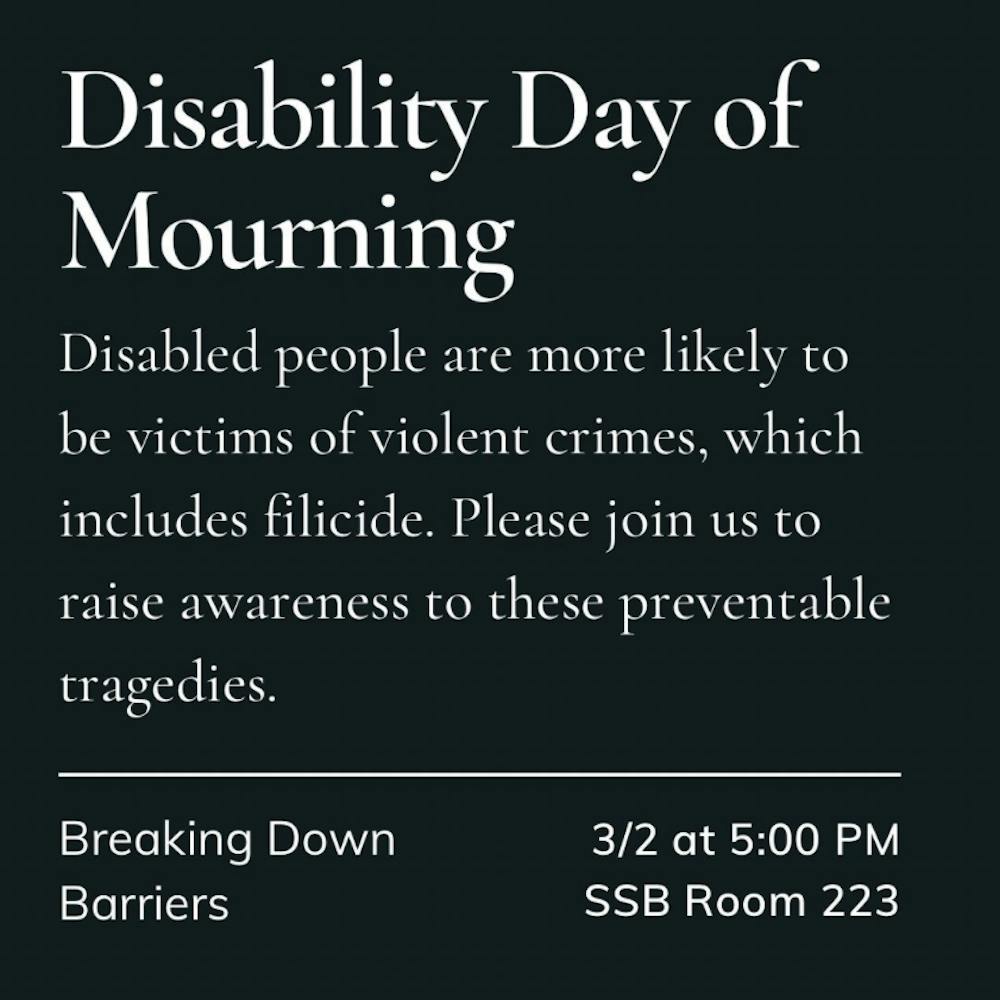By Kaitlin Bavaro
Staff Writer
Breaking Down Barriers, the College’s disability advocacy student organization, hosted a Disability Day of Mourning on March 2 to mourn the loss of people with disabilities due to filicide — the act of killing one's own child.
The event was held to spread awareness of the prevalent and tragic issue, as well as to educate students of the College about filicide and other acts of violence against the disabled community around the world.
Sophomore journalism and professional writing major Asaka Park and junior anthropology major Natasha Ishaq were the main speakers at the event.
“[Violence against the disabled community] is such a big problem, but little things affect the patterns and stigmas of ableism too,” said Park. “Whether it’s something big like murder or something subtle like ableist attitudes, it is important to address everything because ableism and stereotypes is so pervasive in society.”
The speakers noted the effect that ableist attitudes can have on the disabled community, such as the idea that disabled people cannot be happy unless they are “cured,” and that oftentimes disabled people are taught to be compliant, but not how to ask for help or say no. The media often portrays disability as a tragedy, and that people with disabilities are considered brave for simply existing.
The speakers spoke on their own experiences with ableism, whether on campus or with their families.
“Having an obvious disability myself makes me experience discrimination on campus, my classmates assume that I’m less smart or unable to contribute,” Ishaq said. “I know other people feel this loneliness and isolation.”
“Subtle acts of ableism can lead to major acts of violence against people with disabilities. The media is often more sympathetic towards someone that kills a disabled person than someone who kills a non-disabled person. Filicide happens all too often in the disabled community all over the world, and these crimes occur the most in third world countries because these countries lack the resources to help the disabled,” Ishaq said.
Another point that the speakers drove home was the importance of having more conversations about ableism and how it can escalate at the College.
“We do have prejudice based behavior on campus,” said Ishaq. “There needs to be more awareness on campus about disability. [These conversations] are never at the forefront. Any type of discrimination is wrong.”
To help combat ableism on campus, the speakers suggested that people try to educate themselves and fix their own behavior, but most importantly, that there needs to be more conversations about people with disabilities and ableism.
“Laws are words on paper but intentions, actions, and beliefs create effects,” Park said.







